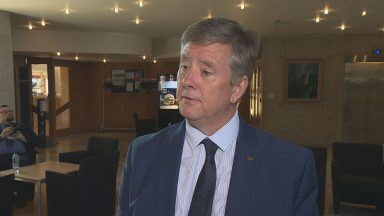A new report has suggested maintaining the policy of free movement of EU citizens in Scotland post-Brexit – even when new immigration rules come into place in the rest of the UK.
Immigration experts at the Fragomen legal firm said it would be “be entirely possible to maintain the free movement rights of European citizens in Scotland”.
It also said “emergency visa measures” could be introduced north of the border to deal with “immediate economic threat associated with Brexit” and that the Scottish Government could negotiate a time-limited regional visa arrangement with the Home Office as short-term measure.
“It would be an extraordinary measure to meet exceptional need,” the report, which was produced for the SNP, said.
It stressed Scotland is “more reliant on migration than the rest of the UK to maintain population growth and to support the national economy”.
Over recent years, only an “extremely small proportion” of the hundreds of thousands of people moving to and from the UK have come to Scotland, with figures showing between 2013 and 2018 migration boosted the country’s population by an average of about 13,000 a year.
The UK Government has so far refused requests for more powers over migration to be devolved to Scotland, including a call earlier this year for a Scottish visa to be established.
While the Conservative administration at Westminster proposes a new points-based immigration system for the UK and the end of freedom of movement, the report said in “policy terms it would be entirely possible” for free movement to be retained in Scotland alone.
It stated: “Free movement is currently given effect through the Immigration Act 1971.
“The Act is likely to be amended by the Immigration Bill 2020 to remove free movement for the UK as a whole.
“A more limited amendment could potentially allow free movement to continue in Scotland.
“As now, Europeans would be free to travel to Scotland and start work without an immigration document, relying instead on their European passport or other acceptable document.”
The report stressed: “Europeans who subsequently wish to move to other parts of the UK would only be allowed to live or work there having met the particular work, study, or family immigration requirements of that region.”
Scotland keeping the free movement of people is one of 11 policy options included in the report – with others suggesting the salary threshold for people seeking to come to work could be lower than in the rest of the UK.
It also suggested introducing more flexible visa quotas for Scotland, allowing the Scottish Government to sponsor migrants using an annual quota of visas granted by the UK Government, over and above those people coming with a job offer whose visa would be sponsored by their employer.
This would be similar to systems in Switzerland and Canada, the report said, where different regions are “relatively free to make decisions differentiating the skills they need and the length of the visas they issue”.
Ian Robinson, partner at Fragomen, said: “It would be entirely possible to operate a Scottish immigration system distinct from the wider UK, or even continuing free movement in Scotland.”
He said Scotland was facing a “series of unique migration challenges which are not necessarily felt by the remainder of the UK”, warning the number of people coming to the country could “potentially decline dramatically”.
Mr Robinson said: “With many rural areas of Scotland having a dependency on foreign workers, businesses and sectors leads are echoing the concerns around their ability to retain staff from overseas.
“The UK’s future immigration system may consider these policy options, alongside the success of similar working systems elsewhere in the world.
“Regional migration has worked for other countries, why not Scotland in the UK?”
Migration minister Ben Macpherson said: “This research offers yet more evidence that a tailored approach to migration for Scotland is necessary and could work within the UK immigration system.
“As the report shows, Scotland relies on migration and the UK Government’s most recent proposals do not provide adequate solutions for our needs in the short, medium or long-term.
“In addition, the immigration routes they have set out will be time consuming and costly for employers.”
A UK Government spokesman said: “Our new points-based immigration system will work in the interests of the whole of the United Kingdom.
“The independent Migration Advisory Committee have recommended a single, less restrictive system to help attract the brightest and the best from around the globe.
“We will continue to work with stakeholders and industry in Scotland to ensure the new proposals work for all sectors.”
Follow STV News on WhatsApp
Scan the QR code on your mobile device for all the latest news from around the country




























